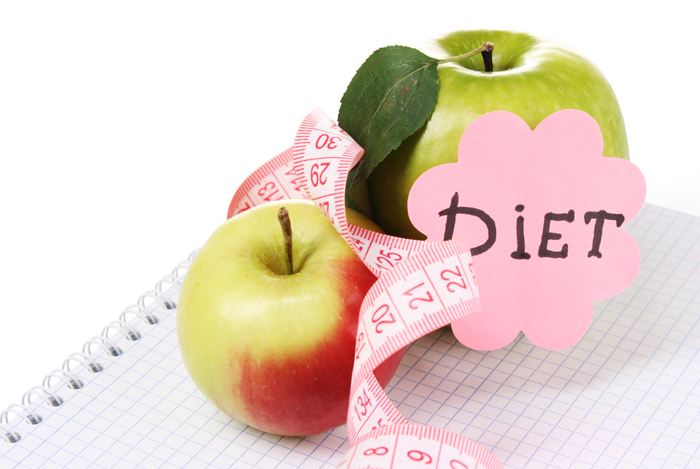Raw, vegan, Paleo, If it Fits Your Macros (IIFYM), fruit-based, Weight Watchers, low-carb, high-carb, low-fat, high-fat, Atkins, Mediterranean, plant-based, macrobiotics, and intuitive eating are all styles of eating practiced by people all over the world.
There are cookbooks, nutrition books, and health sites dedicated to specific types of eating with many people even making a career out of educating people on certain styles of diets.
So how are you to know which one is right for you?
Why Different Diets Work for Different People: Exploring the Right Options for You

If you’re reading this article, chances are that you’ve explored many types of diets and come up empty-handed.
Most people interested in different forms of diets do so for their health.
Others (such as vegans or raw foodists) may also do it for sustainability, environmental, and ethical reasons.
And some who have severe illnesses (such as Paleo and autoimmune style eaters) may have to do so in order to rule out food intolerances.
Finally, those who count macros, points, or carbs and fat per meal may choose to do so to lose weight or because they trying to find a more balanced style of eating that works for them.
As you can see, the number of reasons to try different styles of diets are limitless, but that doesn’t make choosing the right diet for you any easier.
So, to make this process a little simpler, there are five things below you should consider in order to choose the best diet for you. Remember that the same style of eating won’t work for everyone, even if it fits under the same “umbrella” or style of eating.
Here’s how to find the right diet for you:
1. Consider Your Values

What do you value? Simplicity, ethics, humanity, environmentalism, avoiding processed foods, or just eating whole foods? Consider your values to find the best options for you.
For example, if you believe in eating a humane diet, explore a vegan or vegetarian diet.
If you’d like to just eat more whole foods, start by removing all the processed foods from your diet.
If you believe in eating whole foods that are also cruelty-free, consider eating a whole foods, plant-based diet which is vegan and based off whole foods versus processed vegan foods.
If you need to lose weight, think about if your reasons are medical-based or because you’re suffering from poor body image. If the latter is true, consider not dieting at all and just eating real food versus processed foods.
If you value reducing sugar and eating to fight inflammation, consider starting with a Mediterranean diet based off of fruits, vegetables, greens, nuts, seeds, beans, lentils, olive oil, and fish.
The bottom line is to consider your values and eat in a way that adheres to that. When you eat foods that are in alignment with your values, you’ll feel better about eating them which some experts believe can greatly affect your health.
2. Educate Yourself

Don’t just choose a diet because your best friend or doctor says you should. Educate yourself. Find out what the diet entails, if there is any well-researched benefits, and how your food was produced.
We are so out of touch with how our food is processed and grown today that we often have no idea how the foods we eat end up on our plate.
Educate yourself and choose a diet with proven medical benefits, not because your favorite blogger promotes a certain diet or your best friend heard you could lose 10 pounds on the diet.
Within the field of education, you may also explore foods that are potential allergens for you. Many people have a number of allergens to different types of foods, so consider this when you educate yourself on different styles of diets to see if allergens within a diet are relevant to you.
3. Is it Sustainable?

If you can’t imagine counting carbs, macros, and fat grams for the rest of your life, it’s likely not a diet that’s sustainable for you in the long-run. Don’t waste your energy on styles of diets that you can’t see yourself easily adhering to in the future.
The same goes for sustainability and expenses. If you can’t see yourself paying a certain amount of money for foods and groceries now, don’t buy into a pricey style of dieting or fall for a diet gimmick. Think about the long-term, not just the short-term when you consider if a style of eating will work for you.
Remember, many diets are founded as a way for someone to make money. Choose a diet that’s sustainable for your wallet and the planet, which is primarily based off whole, mostly plant-based foods.
4. Try Out Several Forms

Many people attempt to eat raw, vegan, Paleo or whatever else and go about it all the wrong way.
For instance, some people who attempt to eat a raw food diet will fill up on bananas and fruit all day and wonder why it didn’t work for them.
Others who eat a vegan diet may load up on vegan junk foods like Oreos and Twizzlers instead of relying on whole foods like fresh fruits and vegetables, grains, beans, seeds, nuts, and greens. And those who eat Paleo may try to eat mostly all meat and very little fresh foods like fruits, vegetables, and greens and wonder why they feel sluggish.
So if you’re exploring a form of dieting and not sure where you should start within a specific diet, don’t try one form out and just give up if that specific form of eating doesn’t work for you. Again, educate yourself on the diet and do it whatever diet you choose to eat the right way from the beginning so you can give an accurate measurement of whether it worked for you after a few months of trying it out.
5. Cover Your Nutritional Bases

One of the most important things to do when you begin any style of eating is to cover your nutritional bases within the diet.
For example, if you’re eating a vegetarian or vegan diet, you’ll need to take a B12 supplement and be sure to eat plant-based sources of protein and iron such as whole grains, lentils, seeds, peas, and beans.
If you’re eating a Paleo diet, you’ll need to be sure you get enough fiber from fruits, vegetables, and greens since you’re not consuming grains and beans, two of the best sources of fiber in a standard, whole foods diet.
The same goes for low-carb diets. If you’re eating a low-fat diet, you need to be sure you’re getting some source of omega-3 fatty acids and taking a DHA supplement to maintain an optimal intake of free fatty acids we all require for optimal health.
Vitamin D and probiotics are also something most everyone would benefit supplementing with due to the world we live in today. Vitamin D is actually a hormone that is synthesized by natural sunlight.
Most of us don’t absorb enough or get enough sunlight each day to cover our Vitamin D needs.
Probiotics and fermented foods can also help balance our gut bacteria which is often threatened by our exposure to bad bacteria through our diets, the environment, and histories of taking prescription drugs. While it’s not helpful to overload on vitamins and supplements, some may be required for you within a certain form of eating.
No matter what style of dieting you choose to eat, remember that it’s incredibly important to cover your nutritional bases within the diet and again, educate yourself on what it entails. Read books, look up research, and try it out in multiple ways.
The Bottom Line:

At the end of the day, we are all more than what style of diet we individually choose to eat, but eating in a way that provides optimal health for you is the best thing you could ever do for yourself.
You also shouldn’t be afraid or ashamed if one style of eating doesn’t work for you. Be open to changes and eat in a way that makes you feel your best whatever style of diet that may be.
If you’d like some tips on how to eat healthy on a budget without going on a diet, you can also check out these 10 doable tips to get started towards eating healthier and saving money today!
The post 5 Things to Consider to Choose the Best Diet for You appeared first on Nutrition Secrets.
http://www.nutritionsecrets.com/5-things-to-consider-to-choose-the-best-diet-for-you/
No comments:
Post a Comment